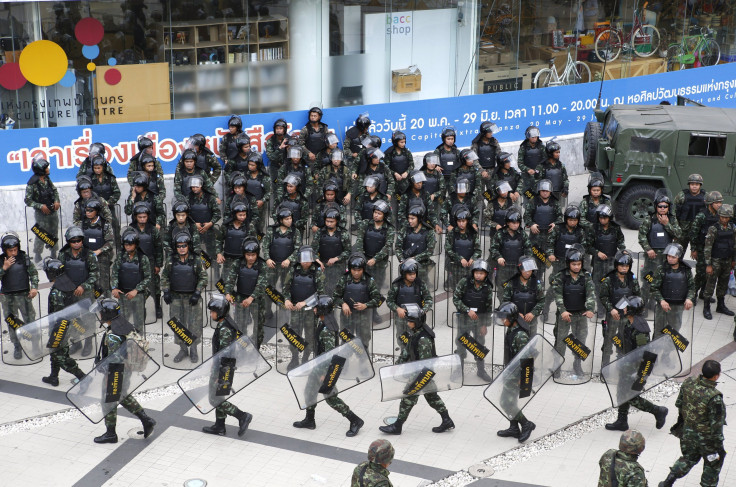Thailand's Junta Summons 23 Thai Officials Settled Overseas To Curb Criticism But Lifts Curfew In 20 Provinces

Nearly two dozen Thai officials from 21 countries landed in Bangkok on Wednesday after the Thai junta ordered them to return in an effort to curb criticism of the country's military rulers by Thai expatriates.
The junta recalled 23 Thai ambassadors and consuls-generals who had reportedly criticized the military coup, which happened on May 22. The military also decided to lift a late-night curfew in 20 provinces, while keeping the curfew intact in 50 provinces, Associated Press reported.
“My family has not yet been threatened but I have already told them to be prepared,” Pavin Chachavalpongpun, an associate professor of Southeast Asian Studies at Japan’s Kyoto University said, according to Time magazine, adding: “There is a hidden agenda to put pressure on critics of the coup, especially to seek cooperation from the host country to send us back home.”
Several television networks and radio stations, which had been ordered shut by the junta during the coup, reportedly resumed operations Wednesday amid strict censorship even as many activists were still being detained by the military, according to reports.
“It’s almost natural [to be threatened] in Thailand now, unfortunately,” Jakrapob Penkair, a former government minister and a founding member of the Red Shirt movement who is living abroad in exile, told Time, adding: “But I don’t see this as a big problem as I could never have gone this far without my family’s consent.”
Penkair reportedly has a 77-year-old mother and a younger sister, both of whom live in Thailand and have been threatened by the junta, which expects elections in the region to be conducted in a year.
Thailand’s military took control after months of protests, which began last November. Violence in the country picked up and led to 28 deaths after former Prime Minister Yingluck Shinawatra and nine of her ministers were found guilty on May 7 of abusing power. Thai Army Chief General Prayuth Chan-ocha then reportedly attempted to broker an agreement between the political sides but orchestrated the coup -- establishing martial law in the country for the twelfth time -- after the discussions fell through.
"Political groups and parties and leaders of the different sides of the political divide need to be careful when they say they don’t trust or have confidence in the [junta’s] work,” Prayuth reportedly told media on Monday, according to Time magazine.
Pavin, who is still fearing an arrest warrant from the Thai junta, said, according to Time: “Before [revoking my passport] they would have to issue an arrest warrant, but I have not done anything wrong — just my job as an academic.”
© Copyright IBTimes 2024. All rights reserved.












